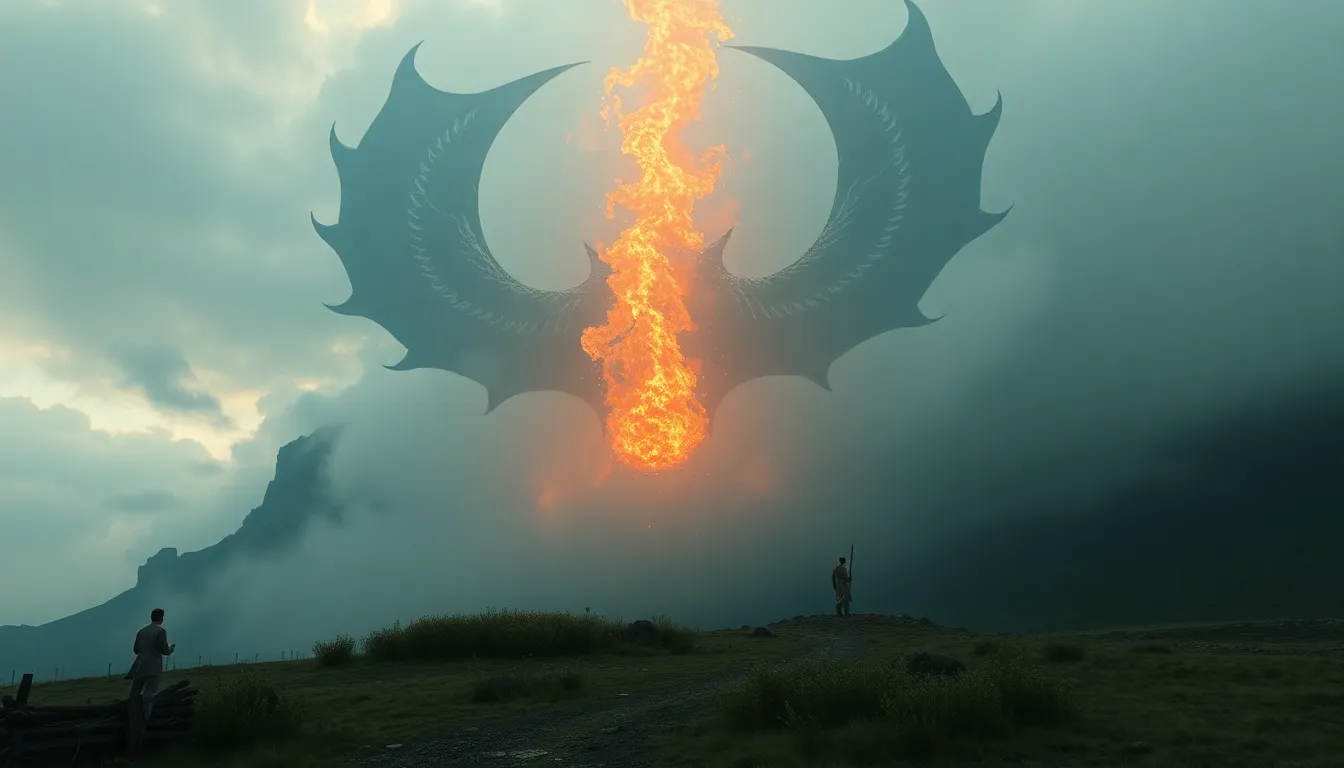The Myths of the End: What They Reveal About Our Society
I. Introduction
Apocalyptic myths are narratives that depict the end of the world or significant transformations in human existence. These myths can be found across various cultures and religions, often serving as a means to explain existential fears and societal changes. In contemporary society, the study of these myths is crucial as they reflect deep-seated anxieties and aspirations that shape human behavior and cultural narratives.
This article will explore the historical context of apocalyptic myths, their religious underpinnings, representations in popular culture, psychological aspects, contemporary interpretations, and the social commentary they provide. Through an examination of these facets, we can gain insight into how apocalyptic narratives reflect our values and fears.
II. Historical Context of Apocalyptic Myths
The origins of apocalyptic beliefs can be traced back to ancient civilizations where natural disasters, wars, and social upheavals prompted reflections on the fate of humanity. These beliefs evolved over time, often influenced by the sociopolitical context of the era.
- Ancient Cultures: Many ancient cultures, such as the Mayans, had cyclical understandings of time that included apocalyptic phases.
- Greeks: Greek mythology featured themes of destruction and renewal, often embodied in tales of gods and monsters.
- Christianity: The Book of Revelation presents vivid imagery of the end times, influencing Western thought on apocalyptic scenarios.
As cultures encountered one another, their apocalyptic narratives intertwined, leading to a rich tapestry of end-time beliefs that continue to resonate today.
III. The Role of Religion in Apocalyptic Narratives
Religion plays a pivotal role in shaping apocalyptic narratives. Many religious texts provide frameworks for understanding the end times, influencing followers’ beliefs and behaviors.
- Religious Interpretations: Various religions offer unique perspectives on the apocalypse, often portraying it as a divine intervention or a necessary purification of the world.
- Impact of Religious Texts: Texts such as the Book of Revelation in Christianity and the Hadith in Islam have profoundly impacted societal beliefs about the end times.
Case studies illustrate this influence: Christianity’s Book of Revelation describes cataclysmic events leading to the final judgment, while Islam’s concept of the Day of Judgment emphasizes accountability for one’s actions.
IV. Apocalyptic Myths in Popular Culture
Apocalyptic myths have permeated popular culture, reflected in literature, film, and other media. These representations often explore human resilience in the face of catastrophe.
- Literature: Works like Cormac McCarthy’s “The Road” depict a post-apocalyptic world where survival becomes the central theme.
- Film: Movies such as “Mad Max” portray dystopian futures where societal collapse leads to chaos and lawlessness.
The influence of media plays a significant role in shaping public perceptions of the apocalypse, often exaggerating fears and inspiring both fascination and dread. Common themes include survival, moral dilemmas, and the fragility of civilization.
V. Psychological Underpinnings of Apocalyptic Beliefs
Apocalyptic beliefs are deeply rooted in psychological factors, including existential anxiety and the fear of the unknown.
- Fear of the Unknown: The unpredictability of the future can lead to a sense of dread, prompting individuals to seek explanations through myths.
- Psychological Comfort: Narratives of renewal and rebirth offer comfort, suggesting that destruction can lead to new beginnings.
- Group Identity: Apocalyptic thinking often fosters a sense of belonging among adherents, uniting them through shared beliefs and fears.
VI. Contemporary Myths: Climate Change and Technological Dystopia
In recent years, contemporary apocalyptic myths have emerged, particularly surrounding climate change and technological advancements.
- Environmental Narratives: The rise of environmental apocalyptic narratives reflects growing concerns over climate change, pollution, and biodiversity loss.
- Technological Dystopia: Fears surrounding artificial intelligence and nuclear threats illustrate technology’s dual role as both a potential savior and a destroyer.
Societal responses to these modern fears range from activism to policy changes, demonstrating how contemporary apocalyptic beliefs can mobilize collective action.
VII. Social Commentary: What Apocalyptic Myths Reflect About Our Values
Apocalyptic myths serve as mirrors reflecting societal anxieties and aspirations. They critique modern civilization by highlighting its vulnerabilities and contradictions.
- Societal Anxieties: Myths often reveal fears about social inequality, environmental degradation, and loss of control.
- Critique of Civilization: Many narratives serve as critiques of consumerism, technological dependence, and moral decay.
The duality of hope and despair in these myths underscores the complex relationship between humanity’s aspirations and its perceived failures.
VIII. The Role of Activism in Apocalyptic Discourse
Apocalyptic fears have fueled various environmental and social movements, inspiring collective action and policy change.
- Activism: Movements like Extinction Rebellion leverage apocalyptic narratives to advocate for urgent action against climate change.
- Influence on Policy: The urgency of apocalyptic myths often influences policymakers to address pressing issues, reflecting societal concerns.
IX. Debunking Myths: The Rational vs. the Irrational
While apocalyptic myths resonate emotionally, it is crucial to distinguish between myth and reality.
- Myth vs. Reality: Many apocalyptic scenarios lack scientific grounding; understanding the distinction can mitigate undue panic.
- Scientific Perspectives: Scientific inquiry provides a rational framework for addressing existential threats, emphasizing solutions over fear.
Encouraging critical thinking and informed discourse is essential in navigating the complexities of apocalyptic beliefs.
X. Conclusion
Exploring apocalyptic myths reveals profound insights into our society’s values, fears, and aspirations. From ancient cultures to contemporary movements, these narratives reflect our collective psyche and the complexities of the human experience. By examining the historical, psychological, and cultural dimensions of apocalyptic beliefs, we can better understand their impact on our lives and the world around us.




